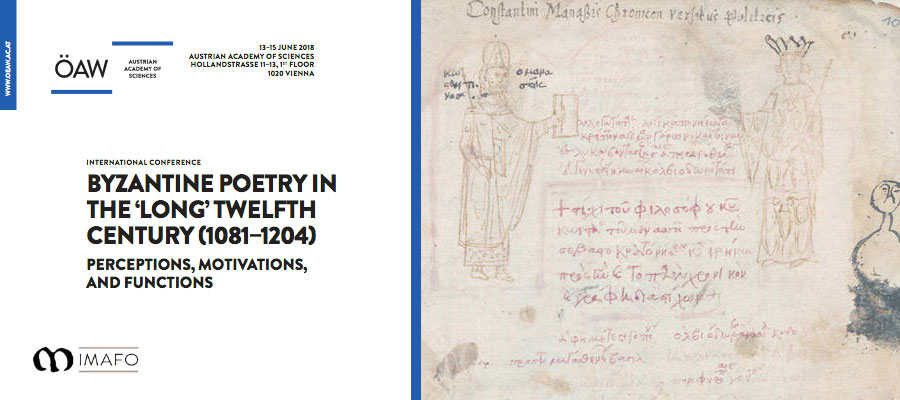Byzantine Poetry in the ‘Long’ Twelfth Century (1081-1204): Perceptions, Motivations and Functions, Austrian Academy of Sciences, June 13, 2018
This international conference aims to acquire a more nuanced picture of the poetry of the ‘long’ twelfth century, which can be considered the ‘golden age’ of Byzantine poetry. The period between Alexios Komnenos’ ascension to the throne (1081) and the fall of Constantinople to the Latins (1204) produced more writings in verse than any other century in middle and late Byzantine times. Moreover, this period is characterized by an experimental and innovative literary climate, evidenced by, for instance, the unprecedented use of literature for ceremonial and didactic purposes at the court and the emergence of works in the vernacular. Many literary novelties of the time are closely associated with contemporary poetic production. How do twelfth-century authors perceive the composition of texts in prose and verse? Why write verse? How does poetry transform in the twelfth century? In what contexts was poetry used? How did it circulate? What ancient and Byzantine models do poets use? What parallel developments mark Greek and Latin poetry of the period?
The conference brings together senior experts and early career scholars to explore these and similar questions.
